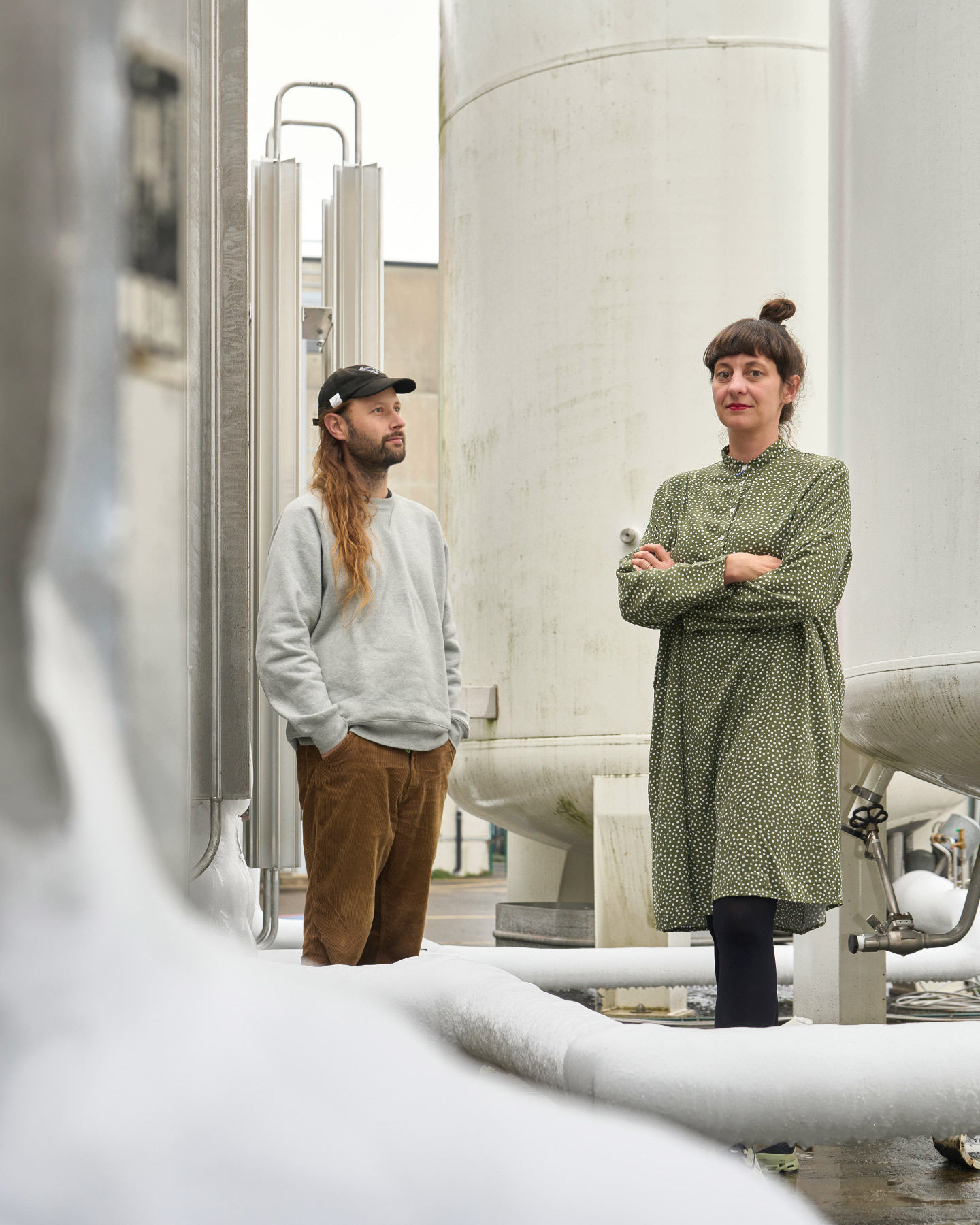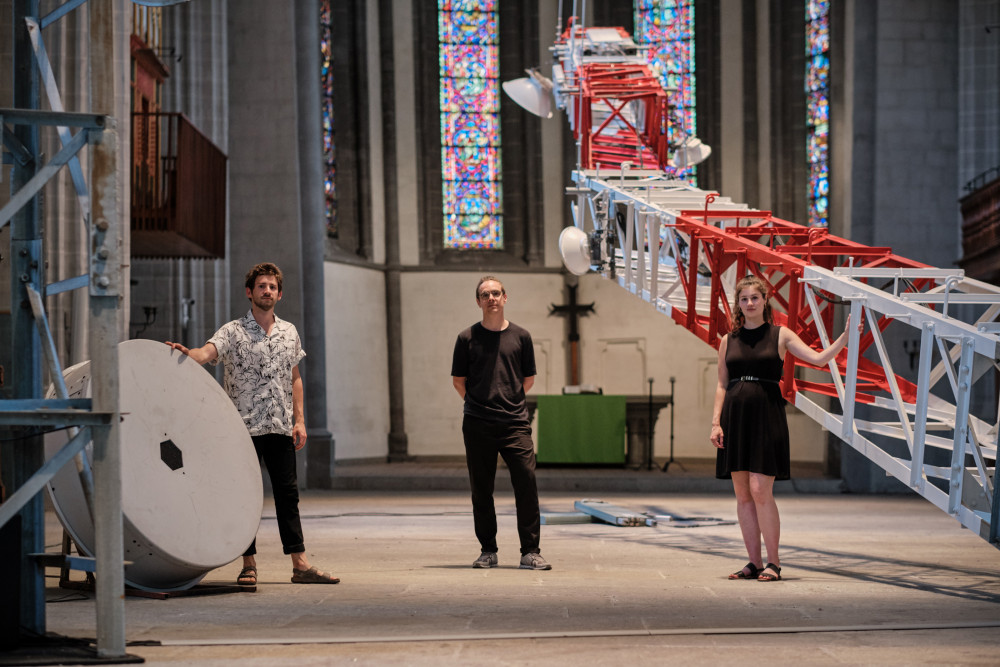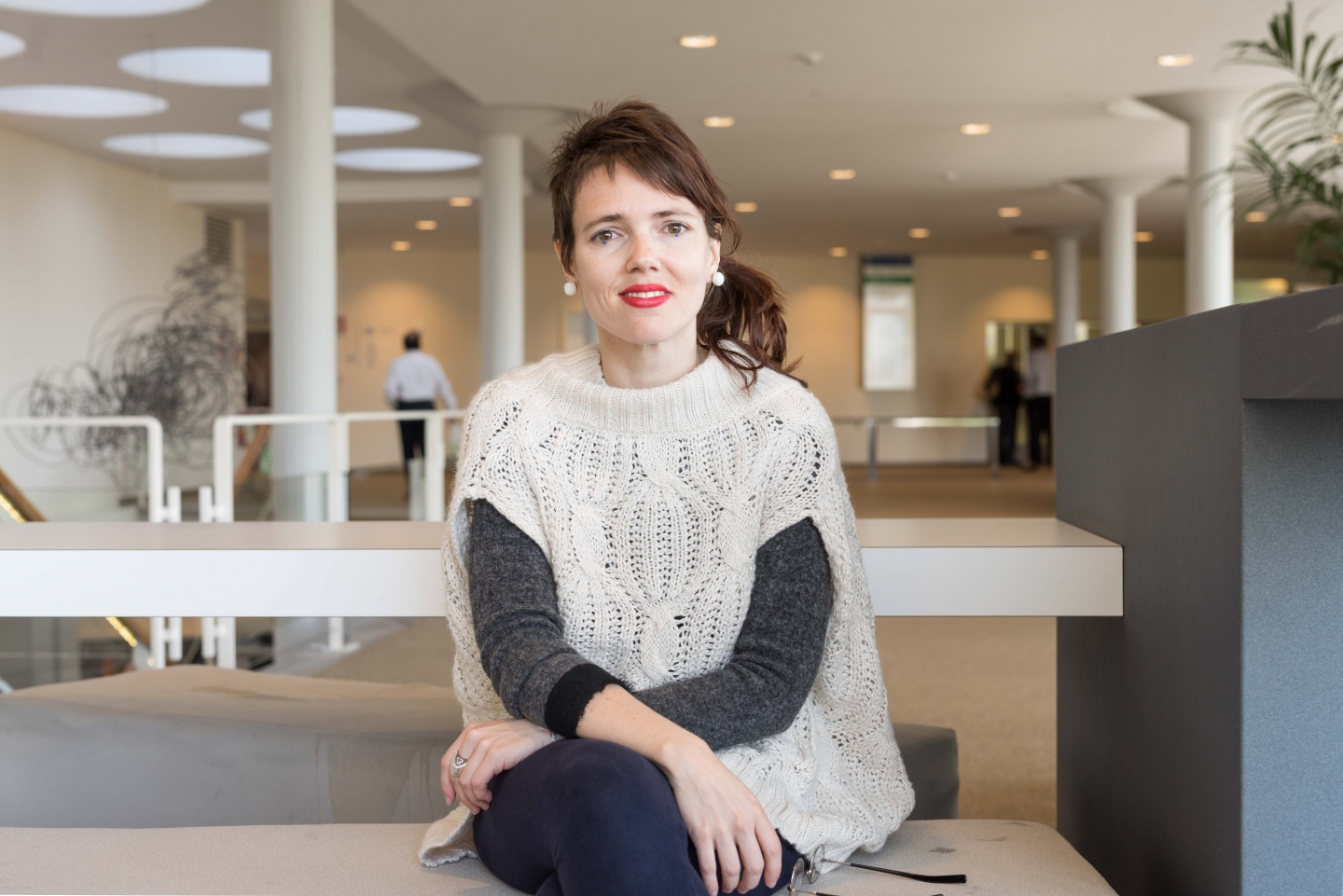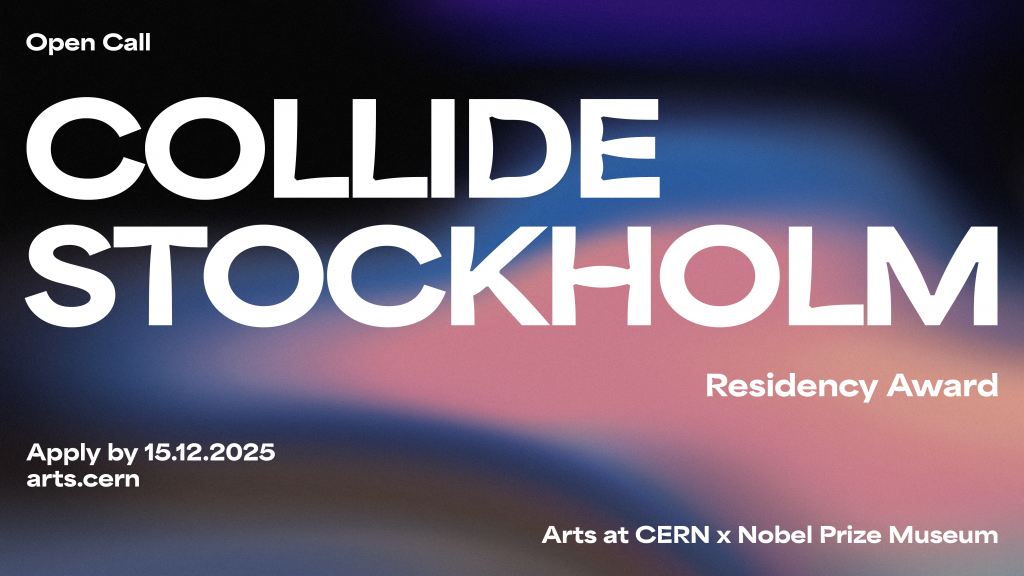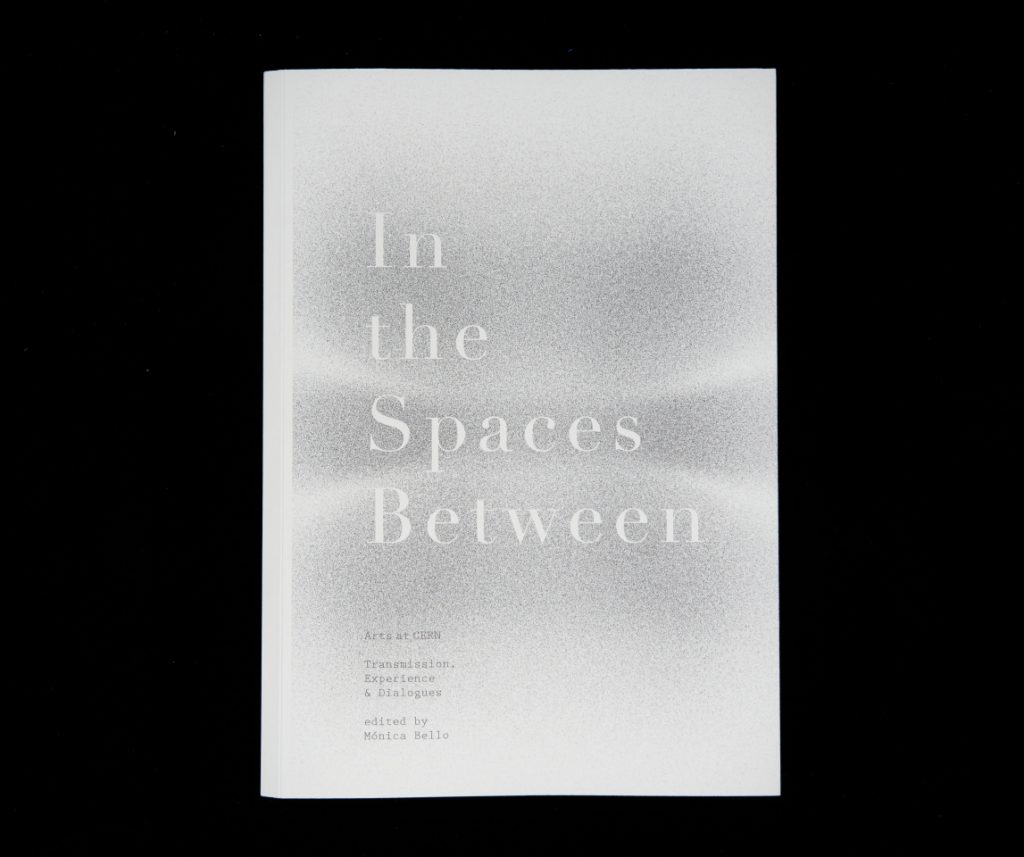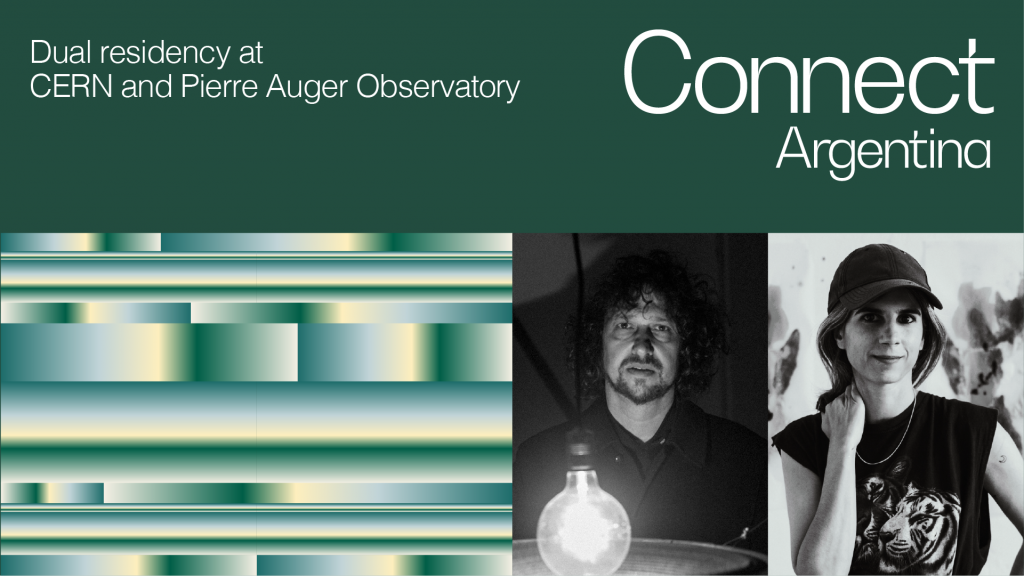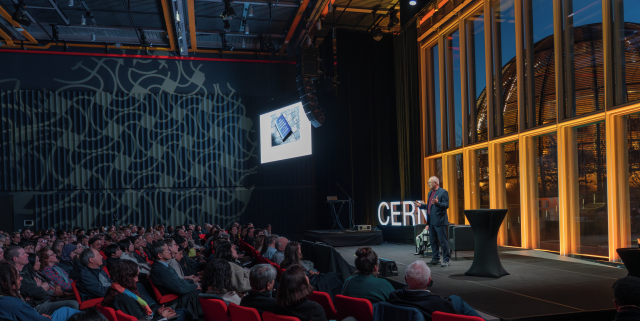- Tags
- Art commissions, Connect
- Author
- Ana Prendes
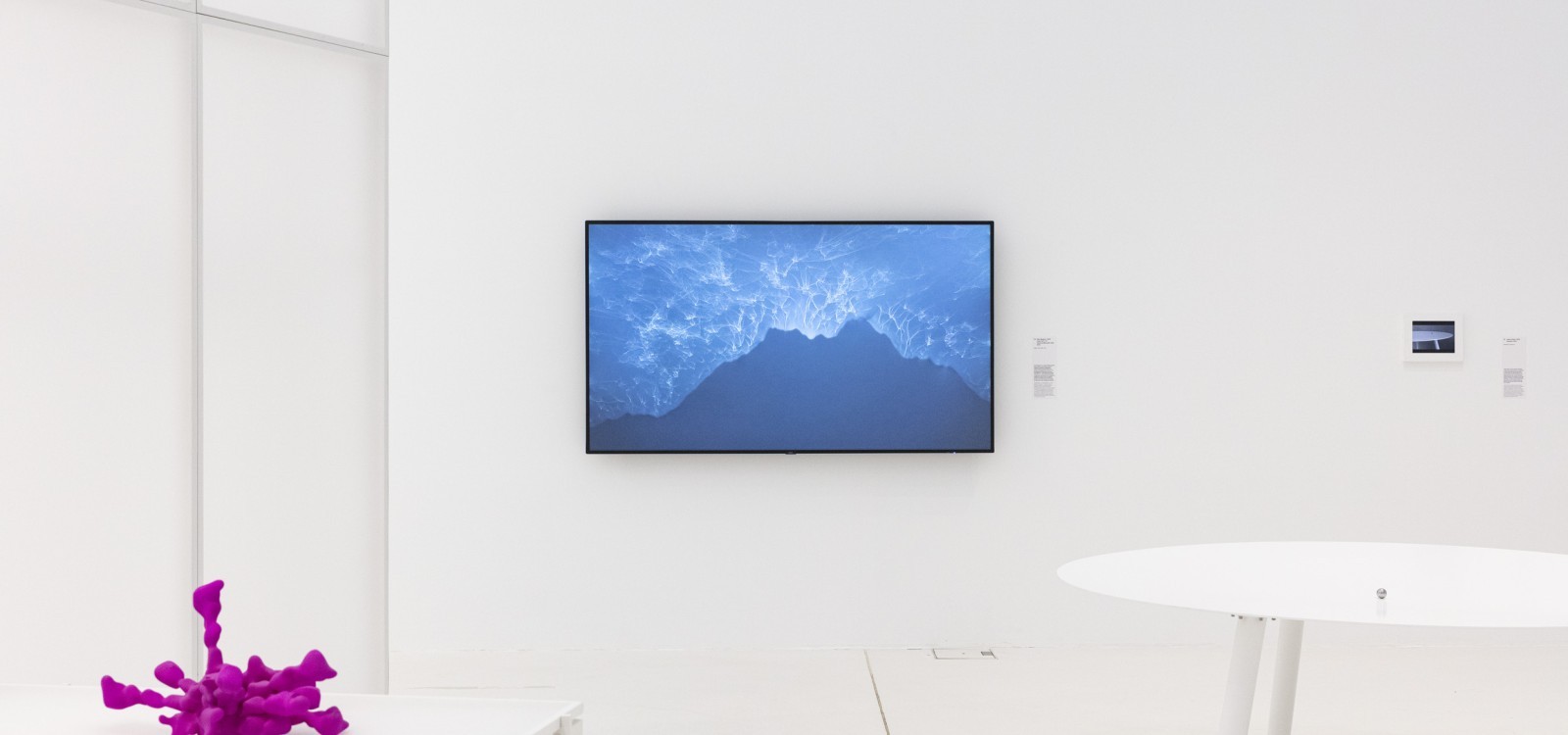
MUDAC’s Space is the Place programme features the CERN-inspired projects by Swiss designers AATB, Laura Couto Rosado, and Fragmentin, which explore the complex relationship between the cosmos and our planet
MUDAC, the museum of Contemporary Design and Applied Arts, presents Space is the Place, a programme of exhibitions, events and publications focusing on the complex relationship between the cosmos and our planet. Cosmos. Design from Here and Beyond, an exhibition presented in 2022 at the CID – Grand Hornu in Belgium, brings together the work of designers who have, in conceptual, technical or poetic ways, questioned the architecture of the universe. From Einstein’s theory of relativity to quantum theory, from gravity to the nature of space and time, from the micro to the macro, the modern image of the cosmos is embodied in various design and architectural projects that take us far beyond its scientific roots, bearing witness to its mysteries and beauty.
AATB, the collaborative practice of Andrea Anner and Thibault Brevet, were selected as the artist for the first edition of the Connect. This programme provides Swiss artists with the opportunity to expand their artistic practice by working with scientists and engineers at the Laboratory. AATB’s work is dedicated to exploring the idea of Non-Industrial Robotics, where the studio experiments with industrial automation processes and robotic arms. They develop works that engage with human-machine interactions through the lens of kinetic and interactive situations.
In Cosmos, AATB presents the sound installation A Particular Score III. The installation makes the impact of cosmic rays tangible—through sound—in a given place and in real-time. Produced by the Sun but far outside the Solar System, cosmic ray particles impact the Earth’s atmosphere, producing showers of secondary particles that reach the surface of our planet, to the tune of about 10,000 particles per square meter every minute. This invisible cosmic flux bathes all of our surroundings.

When a particle hits the detector, the installation responds by knocking on one of the 12 quartz crystal tubes, creating an unpredictable sequence of audible tones. The score thus progresses irregularly, randomly with each impact, as the installation monitors this cosmic stream. It makes perceptible a phenomenon that surrounds us and yet transcends us.
The installation was originally commissioned by the Bienal da Maia, Porto, but has been redesigned entirely for its presentation at Mudac. The new version of the installation is inspired by AATB’s exchanges with scientists at CERN, where they were exposed to the scale and complexity of the research being conducted. This autumn, AATB will continue their residency at the Laboratory, continuing the artistic research of their residency project, entitled 5 Sigma, which seeks to investigate representations of space and time using industrial robotic arms.

Laura Couto Rosado is a Swiss designer who develops her practice in a strong symbiosis between design, art, science, and technology. In 2017, Couto spent three months at CERN working with physicists, engineers, and Laboratory staff as the winner of the Collide Pro Helvetia Award—now Connect.
Her project Quantum Nuggets generates organic forms from real data of particle collisions recorded by the ALICE Experiment, one of the detectors at CERN’s Large Hadron Collider. ALICE studies the quark-gluon plasma originated by heavy-ion collisions at the Large Hadron Collider, which is thought to have existed shortly after the Big Bang.

In collaboration with CERN particle physicist Jeremi Niedziela, Couto-Rosado transformed ALICE’s data into a series of moving images, which were then 3D printed into organic sculptures. Quantum Nuggets aims to reflect on our perpetual questioning about the origin of the universe, materialising the phenomena dating from the Big Bang recreated by physicists at CERN.
The second exhibition, Terra, examines the techno-scientific promises of absolute control and manipulation of our planet, inherited from the Age of Enlightenment and accelerated mainly by the Industrial Revolution and, more recently, geoengineering. Displuvium by Fragmentin is an artistic research that examines the controversial practice of ‘cloud seeding’ – a weather modification technique to influence rainfall. During their residency at CERN in 2015, the Swiss collective explored with physicist Oliver Keller the possibility of creating an algorithm to reproduce rain. Inspired by their time at the Laboratory, the installation takes the form of a water pool where visitors can observe rainfall.

Simultaneously, two screens display a map of historical events related to episodes of rainfall – sometimes of natural origin, sometimes artificial – that dictate the patterns created on the water surface, from random patterns to geometric shapes. Observing the unsettling ‘programmed rain’ creates a meditative experience, reflecting on the limits of our control over the environment and the potential consequences of climate speculation.
The Space is the Place programme runs at mudac until 4 February 2024.
